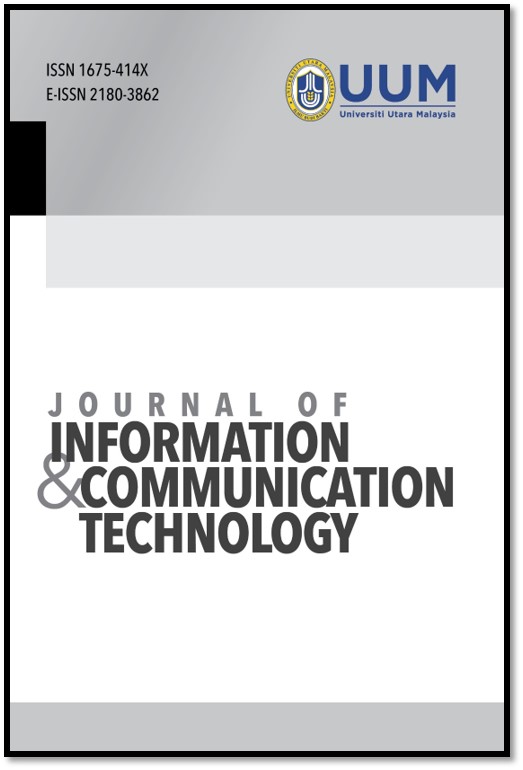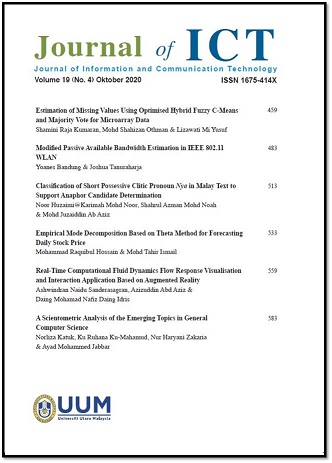Acceptance of IoT-based E-coin Track-and-trace: A Case of the Digital Euro Project in Italy
DOI:
https://doi.org/10.32890/jict2024.23.3.3Abstract
As the world becomes increasingly digitalised, there are growing concerns about the use of big data and machine learning techniques
to monitor and control citizens’ spending habits. This is particularly the case regarding Central Bank Digital Currencies (CBDC), which
are being trialled by an increasing number of countries. There is a perception that such currencies could violate privacy due to the
centralisation of money liability. The aim of this research is to assess whether a universal e-coin level tracking service of money and public expenditures, available to everyone and inspired by Internet of Things (IoT) architectures and standards, could instil trust in
institutions while increasing the acceptance of CDBCs. The research methodology comprises three key elements: (i) the conceptualisation and implementation of an IoT-based CBDC, (ii) a qualitative, technical and compliance assessment with regard to the specific reference to the Digital Euro (D€) project, and (iii) a survey we conducted among 351 respondents to ascertain the potential for CBDC acceptance within Italy. The results demonstrate that the prototype is a viable concept despite storage limitations. Furthermore, 73.83 percent of respondents who initially expressed scepticism indicated that they would be more inclined to adopt the CDBC instrument if a universal track-and-trace tool of money were made available.
Additional Files
Published
Issue
Section
License
Copyright (c) 2024 Journal of Information and Communication Technology

This work is licensed under a Creative Commons Attribution 4.0 International License.

 2002 - 2020
2002 - 2020

























